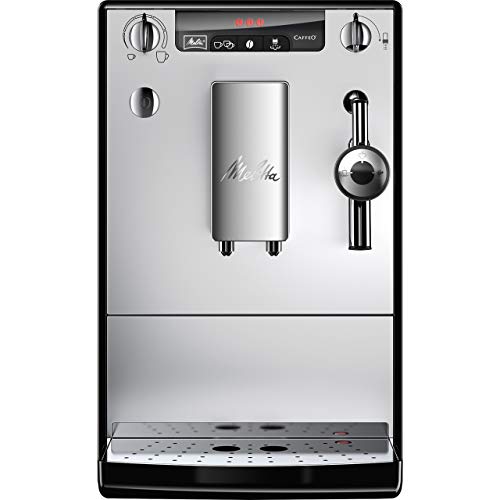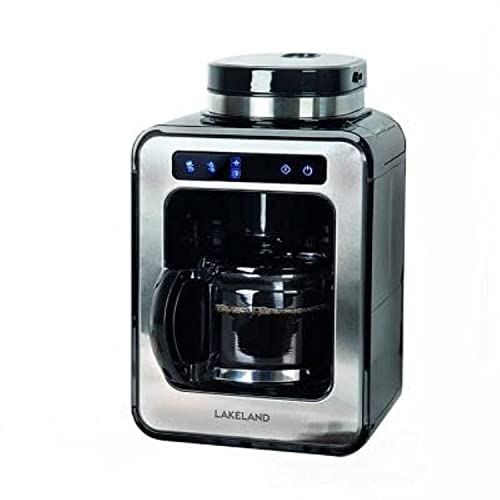Ten Startups That Are Set To Change The Coffee Machine Coffee Beans In…
페이지 정보
Making sure you use the best coffee beans can make a a huge impact on the quality of your coffee. This is especially true for machines that use bean-to cup technology.
They have a hopper that is filled with beans, and then they automatically grind them to the proper size to extract. They also have a brew chamber that holds hot water.
Consistency
When used with the right coffee beans, bean-to-cup machines can make a great cup of coffee every time. But, it is crucial to choose the right type of beans and roast to ensure your coffee is delicious. You also need to know the most suitable grind size for your brewing method. The grind size is crucial because it determines the speed at which water can pass and how much flavor is extracted. It is important to select the right grinder that produces consistent grinding, which is appropriate for your brewing method.
For all brewing techniques, it is recommended that you use medium-coarse beans, as this grind size guarantees an even extraction and a balanced taste profile. It is crucial to avoid dark roast beans in a bean to cup or espresso machine-to cup machine, as they tend to be oily and can block the burrs of your grinder. This can result in a buildup of coffee oils that can produce a bitter cup of coffee.
A variety of factors can affect the quality of coffee beans, including storage and grinding. Beans that are kept too long lose their aromas and moisture. It is crucial to purchase freshly roasted coffee beans for your commercial machine. You should also choose a medium or dark roast, as they are more suited to bean-to cup machines.
The right beans for your machine will be determined by your personal preferences and tastes. Some people prefer to use 100 percent Arabica beans while others might prefer mixing both types of beans. There are many different roasting levels, ranging from light to dark. Certain roasts are more suitable to specific brewing methods and some can be used with any coffee maker.
The consistency of the grind is an additional factor that can affect the taste of your coffee. A coarser grind will allow water to flow through it faster, but it can also be more likely to extract too much flavor (a condition known as over-extraction). The shape and size of the coffee particles are equally important. If they're of different sizes and shapes, it can affect the way water moves through the grounds. This could cause certain areas to be excessively extracted.
Cost-effectiveness
The purchase of a coffee maker could seem like a significant expense, but in the end, it can be more cost-effective than paying for expensive pods. Moreover, you will have more options in terms of beans, and won't be restricted by the options provided by a rental service. In addition, you'll save on maintenance costs and won't have to worry about refills or ongoing service contracts.
There are many different types of coffee machines on the market, and deciding the best one for your workplace will depend on your preferences and preferences. For instance, a bean-to-cup machine will provide you with the most authentic and fresh taste, whereas a pod coffee machine offers ease of use and a wide range of flavors at a more affordable price.
Bean-to-cup machines are more expensive than pod machines, however they can offer many benefits, such as reduced waste and a better cup of coffee. They can be used with various beans, making them a great option for offices looking to cater to a diverse workforce.
The beans you use will determine the taste and quality of your coffee. It is best to select medium roast beans that are roast enough to create complex flavors, but not enough to cause them to lose their natural characteristics. Also, it is important to make sure that the beans are freshly roasted because stale or old beans can affect the final product.
You can save money by grinding your own beans, however you'll have to invest in the right tools and a grinder. It's worth it in the end since you'll be able to adjust the size and strength of the grind to your preference and will have more control over the brewing process. You'll also avoid the toxins and additives that are found in some commercially produced ground coffees. In addition, you'll reduce the amount of waste you produce, since pods can be expensive and difficult to recycle because of their plastic and aluminum components.
Variety
 There are several types of coffee beans, each having a different flavor profile. They can be used in many recipes for food and drinks. Certain beans are roasted darker than others, which can affect the flavor and aroma of your coffee. Certain coffees are roast lighter and can have more fruity or floral flavors.
There are several types of coffee beans, each having a different flavor profile. They can be used in many recipes for food and drinks. Certain beans are roasted darker than others, which can affect the flavor and aroma of your coffee. Certain coffees are roast lighter and can have more fruity or floral flavors.Selecting the best type of coffee beans for your machine can be tricky. There are a variety of factors to consider in addition to the origin, processing method, and roast color. It is also crucial to select beans that were roasted recently. Beans that are too old might lose their aroma and flavor.
While there is no single kind of coffee that is ideal for bean-to-cup machines, there are some that are better than others. For instance, dark roasts are ideal for drinks that are espresso-based, whereas light roasts are more suitable for filter coffee. A good rule of thumb is to try experimenting with a variety of flavors and varieties until you discover the ones that match your palate.
Bean-to-cup equipment is fast and easy to use. They are also versatile and convenient. They can be used to create coffee, cappuccino or latte, as well as other milky beverages. They are a favorite among people who prefer a hands-free experience. You don't have to worry about pressing the portafilter, or tapping out the cake tray. These devices can be purchased from major retailers and are suitable for home use.
Water and coffee beans are the only two ingredients required to make coffee. For a delicious cup it is essential to use water that has been filtered and top-quality beans. The kind of coffee beans you select will affect the flavor and aroma of your coffee.
You shouldn't just pay attention to the quality of the beans and the flavor, but also the aroma and color of the roast. Light roasts have an ethereal flavor, whereas a medium roast has a full-bodied and balanced taste. Dark-roasted beans are ideal for espresso, while medium and light roasts are more suitable for filter coffee and bean-to-cup machines.
Whether you want to make an espresso or pour a cup of filter coffee, you can get your desired result with the coffee bean grinder made by De'Longhi. This bean to cup coffee machines with milk frother-to-cup machine will grind whole beans into fine ground and prepare them for brewing in just a few minutes. It can also make a cup of cappuccino or chai.
Environment-friendly
 Sustainable coffee is important because it's one of the most sought-after beverages in the world. Sustainability in coffee is a combination of environmental, social and economic factors. When buying coffee beans look out for Fair Trade or UTZ certificates to ensure that farmers are receiving an equitable price for their harvest and aren't making use of harmful chemicals. These certifications protect the environment.
Sustainable coffee is important because it's one of the most sought-after beverages in the world. Sustainability in coffee is a combination of environmental, social and economic factors. When buying coffee beans look out for Fair Trade or UTZ certificates to ensure that farmers are receiving an equitable price for their harvest and aren't making use of harmful chemicals. These certifications protect the environment.Despite its many benefits, coffee is a resource-intensive crop. The processing, growing and packaging of coffee beans generates greenhouse gases, deforestation and water pollution. However, the use of sustainable coffee beans and brewing methods can help to reduce these negative impacts. A recent life-cycle assessment (LCA) study looked at the impact of brewing systems on the environment. Researchers discovered that the Moka pot, and single-serve capsules that have aluminum seals left the most environmental footprints. The first caused the most harm to nonrenewable resources, and the latter produced large amounts of waste.
According to the scientists who carried out the LCA The biggest factor in a cup of coffee's environmental footprint are cultivation and production. Coffee cultivation is energy-intensive and uses lots of pesticides, fertilizers, and machinery that emit greenhouse gases. It is also a major contributor to deforestation in the Amazon basin.
In fact, a 2021 study found that coffee produced by the least sustainable methods produced more carbon dioxide than the equivalent amount of cheese, and was about half of the emissions from beef. This was due to the intensive irrigation and fertilization and the use of nitrous oxide emitting pesticides. However, the positive side is that if we were to make the switch to sustainable practices, the negative impact would be reduced significantly.
You can make your coffee eco-friendly by using reusable cups or mugs, buying Fair Trade or UTZ-certified beans and a reliable coffee maker. If you're going to use coffee pods, opt for ones that are compostable 100. You can also buy loose coffee grounds to improve your soil.
- 이전글Double Glazing Window Repair Tools To Help You Manage Your Everyday Lifethe Only Double Glazing Window Repair Trick That Every Person Should Be Able To 24.08.02
- 다음글How To Outsmart Your Boss On Slots 24.08.02
댓글목록
등록된 댓글이 없습니다.









